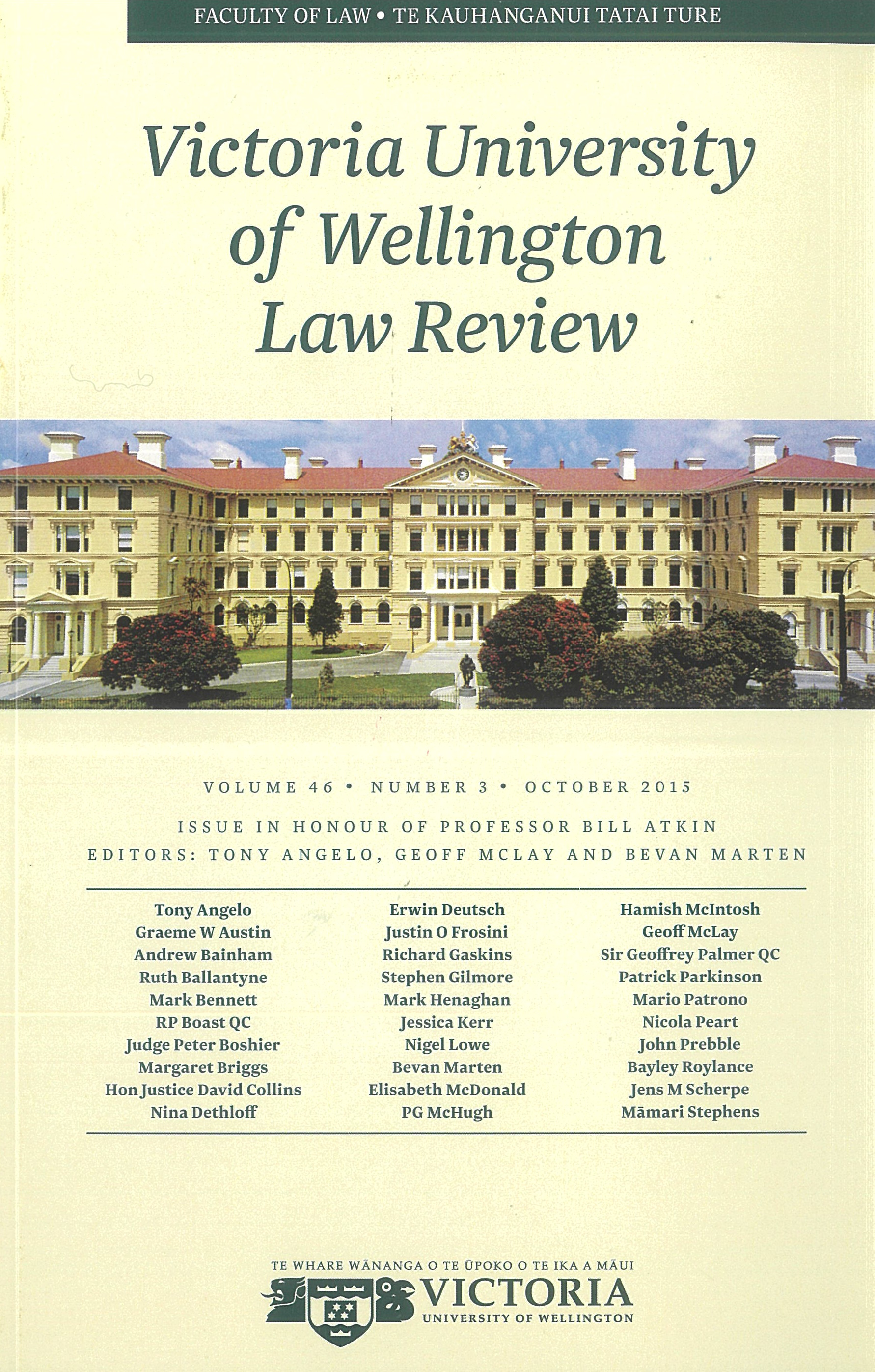The Crown's Relationship with Tribal Peoples and the Legal Dynamics for the Resolution of Historical and Contemporary Claims
DOI:
https://doi.org/10.26686/vuwlr.v46i3.4898Abstract
This article reflects upon themes and foundations of the contemporary legalism attending the resolution of aboriginal claims. It opens with a broad description of the historical foundation of that legalism in the imperial prerogative of the Crown and its continuance in the national constitutional systems of Canada and New Zealand. It then considers how that legalism, with its origination in the imperial prerogative and the ongoing comparative dimension associated with that origin, inhabits a recent local example, namely New Zealand’s Marine and Coastal Area (Takutai Moana) Act 2011. The article shows how this provision reflects the general features of indigenous rights' jurisprudence as it has emerged over the past 30 years: it carries residual elements of the imperial prerogative and it has a comparative element, yet it is also a peculiarly New Zealand instance that marks a new step in the jurisprudence.
Downloads
Downloads
Published
How to Cite
Issue
Section
License
Authors retain copyright in their work published in the Victoria University of Wellington Law Review.


